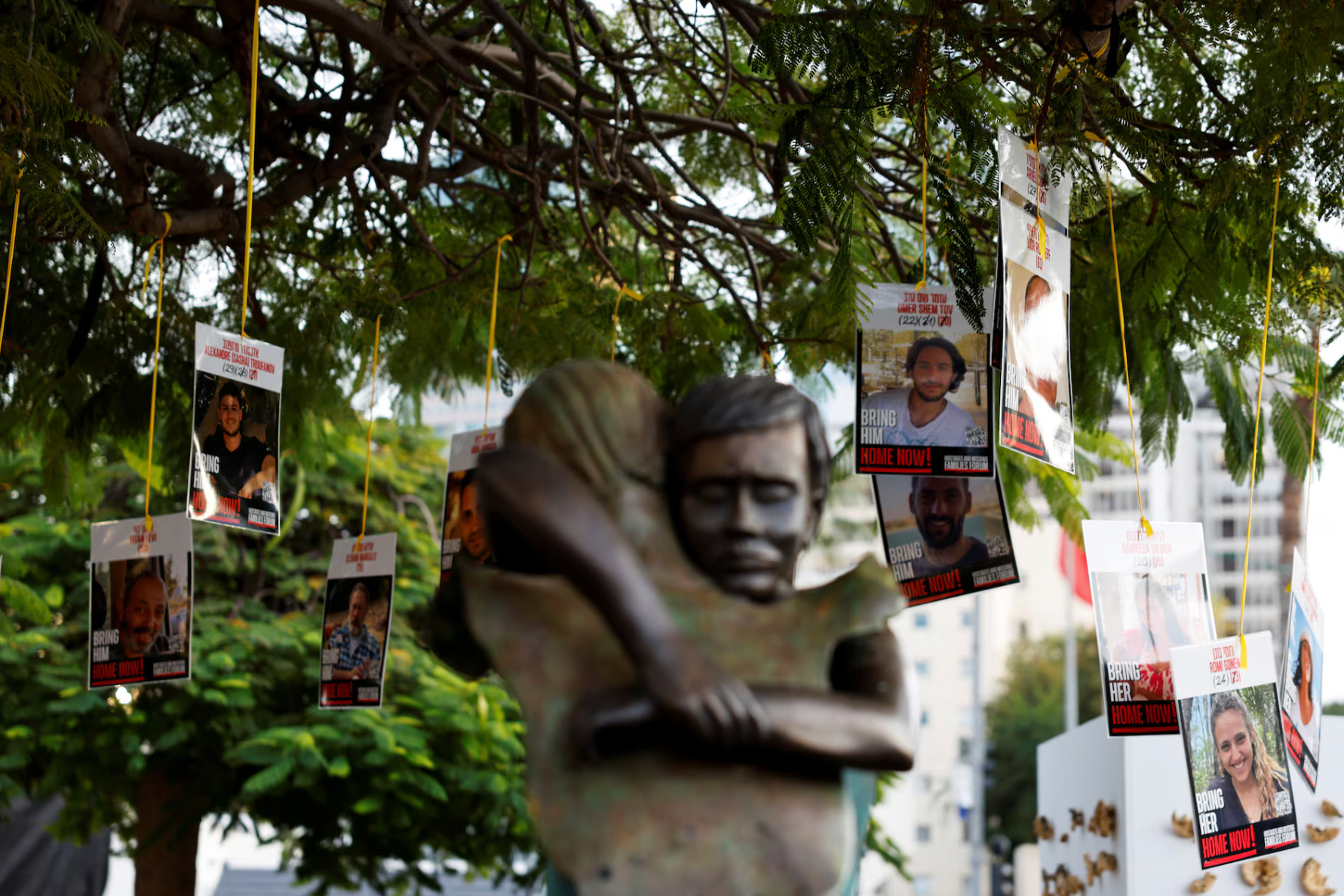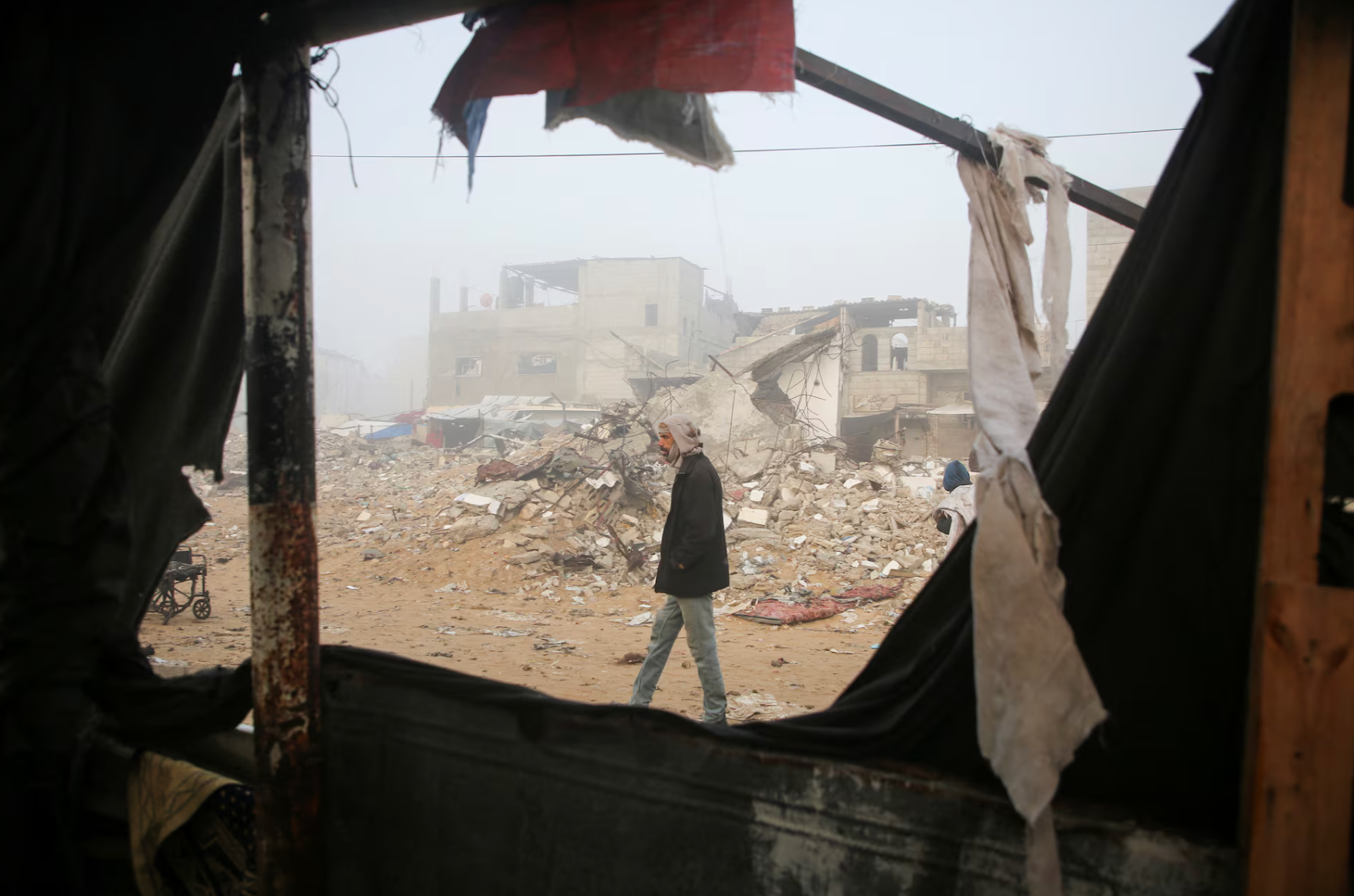Israeli Cabinet approves Gaza ceasefire agreement officially takes effect from January 19
The Israeli cabinet has approved an agreement with the Palestinian militant group Hamas on a ceasefire and the release of hostages in the Gaza Strip, Prime Minister Benjamin Netanyahu's office said on January 18, a day before the deal was due to take effect.
6 hour meeting

Early on January 18, after a meeting lasting more than 6 hours, the Israeli government approved an agreement that could pave the way for ending the 15-month war in the Palestinian area controlled by Hamas.
"The government has approved the framework for the release of the hostages. This framework for the release of the hostages will take effect on Sunday (January 19)," Netanyahu's office said in a short statement.
In Gaza, Israeli warplanes have continued to attack heavily since the ceasefire was agreed. Gaza medics said an Israeli airstrike early on January 18 killed five people in a tent in the Mawasi area, west of Khan Younis in the southern Gaza Strip.
Since the deal was announced on January 15, 119 Palestinians have been killed by Israeli bombardment.
After the Israeli cabinet approved the plan, US chief negotiator Brett McGurk said the plan was moving forward as planned. The White House expected the ceasefire to begin Sunday morning, with the three female hostages released to Israel on the afternoon of January 19 through the Red Cross.
"We've finalized every detail of this agreement. We're very confident... it's ready to go on Sunday," McGurk told CNN from the White House.
Israeli Prime Minister Benjamin Netanyahu said he expected the Hamas militant group to begin releasing hostages on January 19.
Under the deal, the three-phase ceasefire will begin with a six-week initial phase in which hostages held by Hamas will be exchanged for prisoners held by Israel.
Thirty-three of the remaining 98 Israeli hostages, including women, children and men over 50, are expected to be released during this phase. Israel will release all Palestinian women and children under 19 in Israeli prisons by the end of the first phase.
The identities of the 95 Palestinian prisoners to be released on January 19 were announced by the Israeli Justice Ministry on January 17.
After releasing the hostages on January 19, McGurk said the deal would call for the release of four more female hostages after seven days, followed by three more hostages every seven days after that.
Hardliners oppose ceasefire

Amid fierce opposition to the deal by some hardline ministers in the Israeli cabinet, media reported that 24 ministers in Netanyahu's coalition government voted in favor of the deal, while eight voted against it.
Opponents say the ceasefire is a concession to Hamas. National Security Minister Itamar Ben-Gvir threatened to resign if the deal was approved and urged other ministers to vote against it. However, he said it would not bring down the government.
Finance Minister Bezalel Smotrich, his hardline ally, also threatened to resign if the government did not return to the fight to defeat Hamas after the initial six-week ceasefire.
After a last-minute delay on January 16 that Israel blamed on Hamas, Israel's security cabinet voted on January 17 in favor of the ceasefire agreement, the first of two necessary approvals.
Israel began its offensive on Gaza following Hamas attacks on Israel on October 7, 2023, in which, according to Israeli figures, about 1,200 people were killed and 250 were taken hostage.
The war between Israeli forces and Hamas has devastated many urban areas of Gaza, and according to local authorities, has left more than 46,000 people dead, while displacing most of the area's pre-war population of 2.3 million multiple times.
If successful, a ceasefire could also ease tensions in the Middle East, where the Gaza war has spread, drawing in Iran and its allies — Lebanon's Hezbollah, Yemen's Houthis and armed groups in Iraq and the occupied West Bank.
Gaza residents have been facing a humanitarian crisis of hunger, cold and disease. The ceasefire called for increased aid, and international organizations have lined up aid trucks at the Gaza border to bring in food, fuel, medicine and other essentials.
The Palestinian relief agency UNRWA said on January 17 that it had 4,000 aid trucks, half of them carrying food, now ready to enter the coastal strip.
Palestinians waiting for food in southern Gaza on January 17 said they hoped a ceasefire would end the hours-long queues for a meal.
“I hope this will happen so we can cook at home and make whatever food we want, without having to go to a soup kitchen and exhaust ourselves for three or four hours trying to get food – sometimes not even being able to bring it home,” said Reeham Sheikh al-Eid, a displaced Palestinian.
